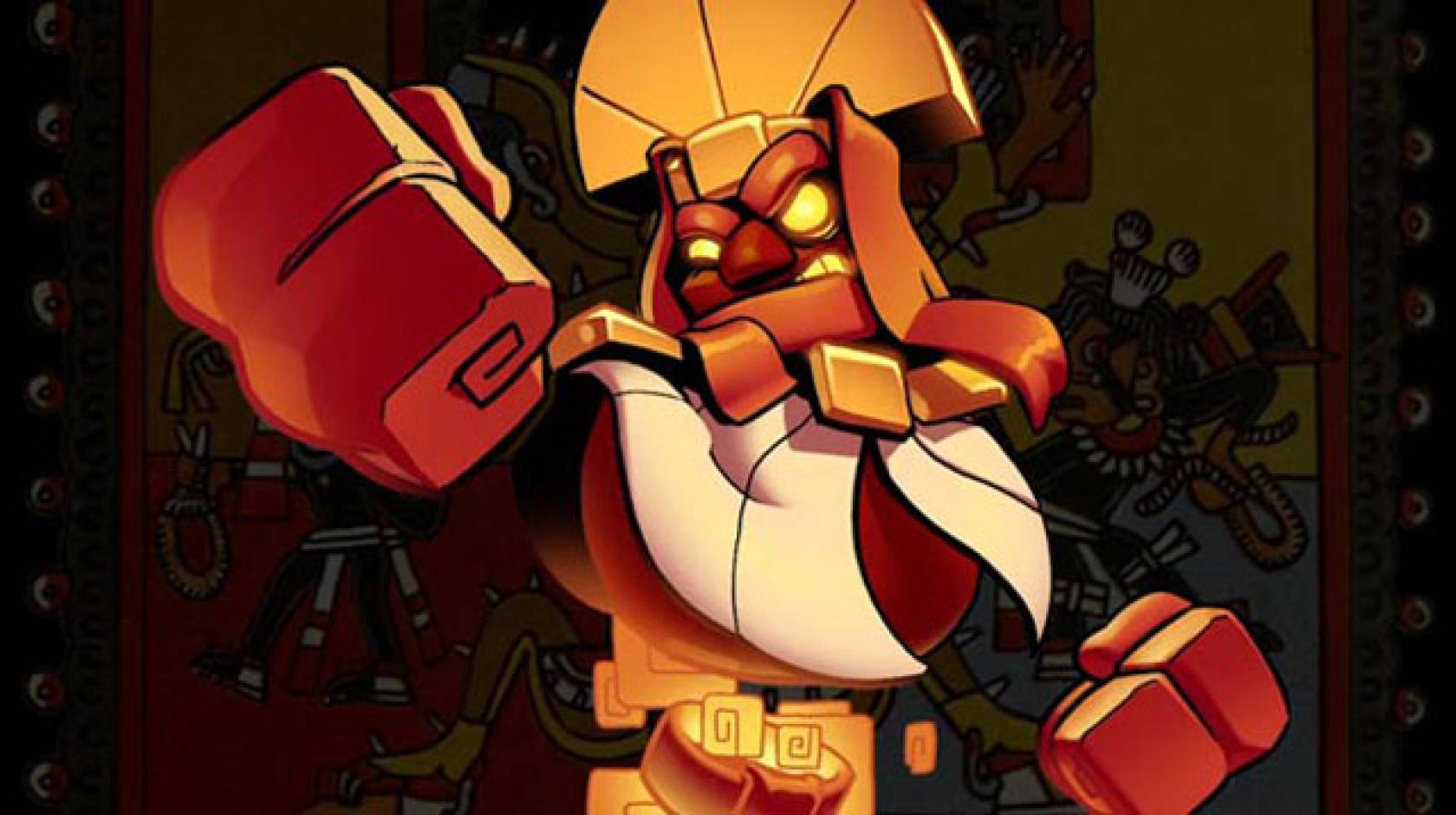Matthew Renda, UC Santa Cruz

A trio of recent graduates from the UC Santa Cruz Games and Playable Media master’s program have turned their school project into a viable commercial product on one of the internet’s largest online game platforms.

Credit: UC Santa Cruz
Pedro Cori, Alexander Formoso, and Cong Liu created a video game called "Ulama: Arena of the Gods," which launched March 28. The game was “greenlit” by the Steam community in just 15 days. Steam Greenlight, part of Valve’s Steam digital distribution platform, is a way for users to help choose which games are added to the service.
“We made this game program for UC Santa Cruz’s master’s degree program and by the end I thought it would make a good product,” said Cori, who acted as the creative director for the project. “So we decided to launch it commercially.”
When the team uploaded "Ulama" onto Steam, they weren’t sure if the concept would catch, but within the first two weeks the video game garnered 2,700 votes, out of which 800 were positive. Most of the other votes were neutral.
“We had a lot of positive comments in proportion to negative ones, so that definitely helped,” said Formoso, who acted as the project producer on the team.
Ancient ballgame brought to life

Credit: UC Santa Cruz
"Ulama" is the brainchild of Cori. The gameplay is based on an ancient ballgame played by the Aztec and Mayan people. Only instead of people playing the games, the many deities that populate the myths of the ancient cultures face off.
“My father used to read from me from these illustrated books of myths and legends from Mesoamerican cultures,” Cori said. “When we were told we could make a game about whatever we wanted, I thought a ball game that incorporated these stories could work.”
While Cori developed the thematic aspects of the game, the rest of the team worked to bring his vision to life.
“This is how it worked: Pedro would come into the room and would tell us about this awesome idea,” Formoso said. “I would look at Cong and ask him, ‘How much time do you need to build that?’”
Cong Liu would give an estimate and Formoso would give it a thumbs up or down.
“I was the technical director of the team,” said Liu. “We’d have some technical issues and decisions to make about what kind of approach to the gameplay and that kind of stuff. And I’m responsible for the development and implementation for several of the core functions.”
How a passion project led to a dream job
Liu — the “coding wizard” — also developed the artificial intelligence for the game.
Since graduating from the Silicon Valley-based master’s program last year, Liu was hired by Google, joining the team developing the company’s nascent virtual reality product line.
Liu commends the UC Santa Cruz program, and said the project he undertook with his two teammates was an integral aspect of being able to land his dream job.
“When I was interviewing with Google, they were asking about my project, about 'Ulama', my responsibilities, and what code I was contributing,” he said. “That project, with Pedro and Alex, it was a really good thing for me.”
Cori agrees.
He, too, is launching his own career in gaming, working for a VR gaming company in Seattle called Against Gravity. He has begun work on a VR game called 'Rec Room,' which features the ability to play different recreational games in a virtual reality with the incorporation of a multiplayer format.
“Ulama was a gold star on my portfolio,” Cori said.
Waiting to see what will happen now that 'Ulama' is live
Formoso works as a game programmer with Bohemia Interactive in the Czech Republic.
“Anybody can pay to put their game on Steam Greenlight, but the fact that we got approved says something,” Formoso said.
And while the three teammates undertook the master’s program and chose a commercial project for the express purpose of advancing their fledgling careers, they can’t help but be excited to see what happens now that "Ulama" is live.
“It’s exciting,” Formoso said. “You can go to Steam and our game is there next to 'Infinity Warfare.'"
Cori says the game won’t supplant "Call of Duty" or other popular defacto multiplayer games that dominate the market, but the game, which resembles the gameplay one finds in "Smash Bros." or "Rocket League," will be fun for people to play together.
“We built a casual, fun game — a family game,” he said. “We envision a bunch of friends on the couch playing at party. That’s good enough for us.”

